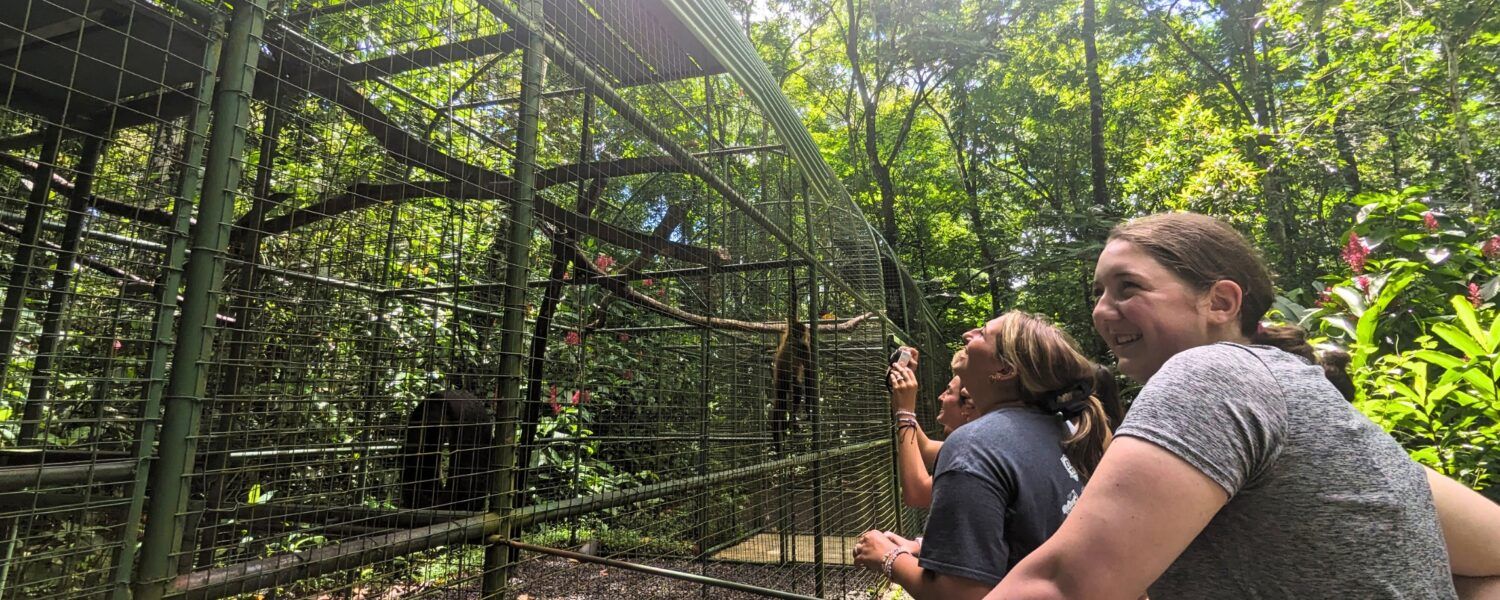
Take a Walk on the Wild Side: Exploring Wildlife Careers
By: Savannah Kern, Broadreach Program Director October 30, 2025 High School Adventures, Wildlife Conservation
Choosing a career path can feel overwhelming—especially if you know you love animals but aren’t sure what that means for your future. Does “working with wildlife” mean studying animals in the field, creating conservation policies, caring for them in sanctuaries, or educating others about nature?
If you’re passionate about protecting wildlife and want to make a difference, the best way to start is by doing research and gaining hands-on experience. Below, we explore several exciting wildlife and conservation career paths—plus real-world ways to start preparing now.
🐾 Wildlife Biologist
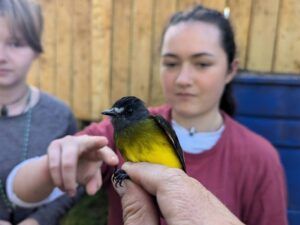
Overview
Wildlife biologists study animals and their environments to help protect and conserve them. They collect and analyze data about how animals behave, what they eat, where they live, and how factors such as pollution and habitat loss affect them. Their work guides decisions about wildlife management and habitat protection.
Wildlife biologists often split their time between field research and laboratory analysis, and they typically hold at least a bachelor’s degree in wildlife biology or a related science. Some pursue advanced degrees to specialize in areas like marine biology, ecology, or genetics.
Is it a good fit for you?
Do you enjoy being outdoors, solving problems, collecting data, and learning in-depth about specific species?
Tips to Get Started
Spend time outside—observe animals and their habitats.
Volunteer at science or nature centers.
Start a birding or ecology club at school.
Read about wildlife research projects that inspire you.
Broadreach Program Suggestions
🦭 Amazon + Galapagos Eco Adventure – Learn field research methods while exploring the rainforests and islands that inspired Darwin.
🐘 Malawi Wildlife Conservation – Track lions, cheetahs, and elephants alongside local researchers.
📸 Wildlife Photographer
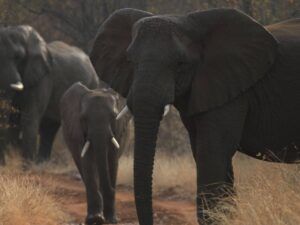
Overview
Wildlife photographers capture the beauty and behavior of animals in their natural habitats. This career blends creativity, patience, and an understanding of animal behavior. Professionals may work with media outlets, conservation groups, or lead photography tours around the world.
Is it a good fit for you?
Do you love being creative, spending time outdoors, and waiting for that perfect shot? Are you interested in editing and sharing photos on social media?
Tips to Get Started
Take photos in different natural settings and build your portfolio.
Join a photography class or club.
Study the work of well-known nature photographers.
Share your work online and ask for feedback.
Broadreach Program Suggestions
🐘 Malawi Wildlife Conservation – Photograph elephants, giraffes, zebras, and other incredible species up close.
🐢 Costa Rica Sea Turtle + Conservation – Capture images of tropical birds, sea turtles, and lush jungle wildlife.
🌿 Outdoor or Wildlife Educator
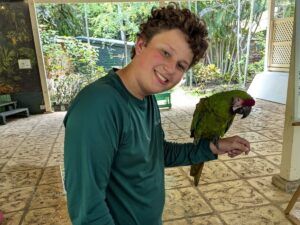
Overview
Outdoor educators teach others about wildlife, ecosystems, and conservation. They might lead educational programs at zoos or nature centers, visit schools, or organize community outreach events. Their goal: inspire people to care for nature and take action to protect it.
Is it a good fit for you?
Do you enjoy public speaking, working with others, and sharing your passion for animals?
Tips to Get Started
Volunteer at zoos, aquariums, or local nature centers.
Help lead environmental clubs or summer camps.
Take public speaking or communications courses.
Spend time outdoors learning about local species.
Broadreach Program Suggestions
🐳 Azores Whale & Dolphin Experience – Learn from marine biologists and practice teaching others about ocean conservation.
🦩 Bahamas Island Wildlife Explorer – Gain confidence working with animal ambassadors, from snakes to tropical birds.
⚖️ Environmental Policy or Wildlife Law
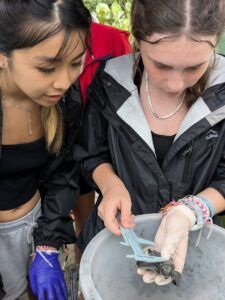
Overview
Wildlife policy analysts and environmental lawyers turn passion into action by shaping the laws and policies that protect species and habitats. They use research and advocacy to find real-world solutions for conservation challenges, often working in government, nonprofits, or international organizations.
Is it a good fit for you?
Do you enjoy writing, debating, problem-solving, and standing up for what’s right?
Tips to Get Started
Read about environmental law and wildlife policy.
Join a debate or student government club.
Volunteer with community or conservation projects.
Learn about current conservation issues.
Broadreach Program Suggestions
🐠 Yucatán Ocean Conservation – Join citizen science projects and learn how policy influences conservation.
🐢 Costa Rica Sea Turtle + Conservation – Explore one of the world’s best examples of successful wildlife policy in action.
🌲 Park Ranger or Wildlife Officer
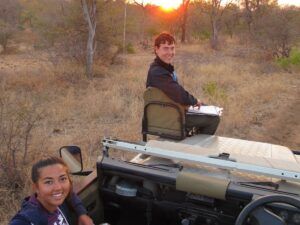
Overview
Park rangers and wildlife officers are the frontline defenders of nature. They manage parks, forests, and protected areas—enforcing laws, educating visitors, and protecting both wildlife and people. Some respond to emergencies or assist in wildfire management.
A degree in biology, forestry, or environmental science is often required, along with field experience and strong communication skills.
Is it a good fit for you?
Do you love the outdoors, enjoy problem-solving, and work well independently or in small teams?
Tips to Get Started
Hike, camp, and learn about your local ecosystems.
Volunteer at parks or with conservation groups.
Read up on wildlife protection laws and regulations.
Broadreach Program Suggestions
🦭 Amazon + Galapagos Eco Adventure – Work alongside researchers monitoring biodiversity in remote regions.
🐘 Malawi Wildlife Conservation – Learn about anti-poaching and wildlife protection efforts on a real African reserve.
🩺 Wildlife Rehabilitation Specialist
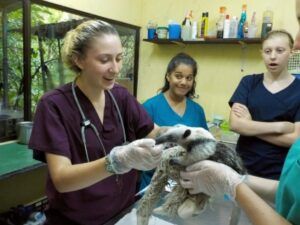
Overview
Wildlife rehabilitators care for injured, sick, or orphaned wild animals with the goal of releasing them back into the wild. This hands-on career combines compassion, attention to detail, and veterinary knowledge. Daily tasks include feeding, medical treatment, and educating the public about coexisting with wildlife.
Is it a good fit for you?
Do you enjoy caring for animals, solving problems, and working hands-on in a meaningful way?
Tips to Get Started
Volunteer at animal shelters, wildlife centers, or sanctuaries.
Learn about local species and their needs.
Study biology or veterinary science.
Broadreach Program Suggestions
🦥 Costa Rica Veterinary Experience – Work with wildlife caretakers at a local sanctuary and learn rehabilitation techniques.
🦩 Bahamas Veterinary + Wildlife Care – Learn about flamingo rehabilitation and animal care at an island sanctuary.
Finding Your Path in Wildlife Conservation
Whether you dream of photographing elephants, tracking sea turtles, or writing policies that protect ecosystems, there’s a wildlife career for you. Each path starts with curiosity—and grows through hands-on experiences like those offered by Broadreach wildlife and conservation programs.
Explore our full collection of wildlife and conservation trips for teens to start your journey today.
